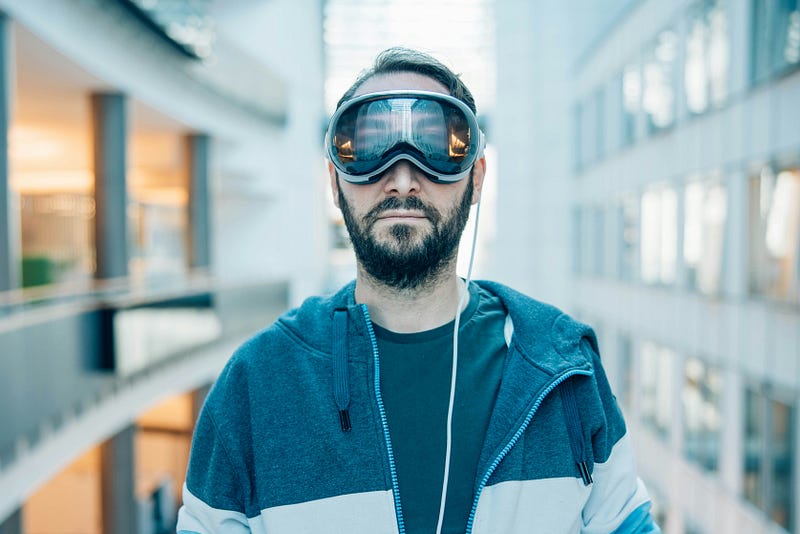A Surprising Paradox: Advanced Yet Diminished Society
Written on
Understanding Our Advanced Yet Ignorant Society
We find ourselves in an unusual moment in American history. This phenomenon appears to be self-sustaining and unlikely to disappear soon. As one of the most advanced cultures on Earth—perhaps even in the universe—we boast remarkable technologies that tap into immense natural forces. Our grasp of science, biology, medicine, and mathematics is unparalleled, yet it often seems like we are regressing.
Despite having handheld devices that serve as gateways to the entirety of human knowledge, our collective intellect appears to be dwindling. We are more interconnected than ever, yet simultaneously, we experience a disconcerting disconnection from reality and from one another.
In a recent late-night show, a well-known actor proudly proclaimed his detachment from technology—not only did he avoid social media, but he also didn’t own a smartphone. He described how he believed his personal assistant was exceptionally intelligent, always providing quick answers to his questions. “I didn’t realize he was just checking on his phone,” he remarked, revealing a startling truth about our culture.
This amusing anecdote highlights a troubling aspect of our society: we are both astonishingly privileged and profoundly ignorant, heavily reliant on others for information. It raises questions about the extent of our disconnection from the world around us.
It seems almost absurd to be so affluent that one feels no obligation to engage with anyone except those deemed worthy. Or perhaps, one might argue, it is admirable to live in such self-sufficiency and presence that external connection seems unnecessary. However, this celebrity merely traded an electronic helper for a human counterpart, a servant with boundless access to information.
Our political and cultural leaders often relinquish their ability to perceive the world independently. They increasingly depend on professionals who maintain the status quo and provide comforting reassurances. But how much do we truly comprehend? What do we take for granted?
The erosion of democracy and the foundations of Western society can be traced back to a growing skepticism of knowledge itself. Distrust in authority is not just about questioning the media; it extends to rejecting anything that seems beyond comprehension. Instead of seeking logical answers, many fall prey to outlandish conspiracy theories because they fit snugly within a limited perspective.
Despite claims that the first person expected to live to 150 has already been born, our bodies may still face limitations. Even with significant medical advancements, our lifespans may cap out around a century and a half. The biggest obstacle we face might be ourselves. If we don’t destroy each other with advanced weaponry, we may simply deplete our resources until we face famine and despair—all by our own choices.
It’s challenging to envision a reversal of this trajectory without a monumental catastrophe. Climate change could potentially propel our evolutionary progress, compelling us to use technology to save ourselves. This may involve reducing the population while learning to utilize our resources more efficiently. Alternatively, we could develop a weapon that is far more destructive than a nuclear bomb—though the devastation may manifest in subtler ways.
Every generation seems to advance further than the last. While this may be the first time since the Great Depression that a generation faces worse financial prospects than its parents, history has shown us this cycle before.
Throughout human history, we have repeatedly convinced ourselves that certain entities or societies are invincible. We often tell ourselves that this time is different—a paradigm shift that renders the old rules obsolete—only to find that the ground has given way beneath us.
Hubris may be humanity's greatest flaw. The idea of manifest destiny has not always served us well. Yet, we are undeniably resilient; we can thrive in nearly any environment and adapt to whatever sustenance we can find.
Expect challenges before improvements, and likely both will occur. The extent of the privilege gap remains uncertain, but we can be sure of one thing: things will inevitably get better and worse. That much is certain.
For more insights from David Todd McCarty, consider following his posts. If you aren’t a Medium subscriber, sign up to read his articles and explore the works of many other talented writers. Follow this publication to show your support.
In the first video, titled "JAGEX, It's Worse Than EVER Before…", we delve into the complexities of modern society, revealing how our advancements can sometimes lead to greater disconnection.
The second video, "Never Been Better (Official Lyric Video)", reflects the paradox of our times, capturing the tension between progress and ignorance.
